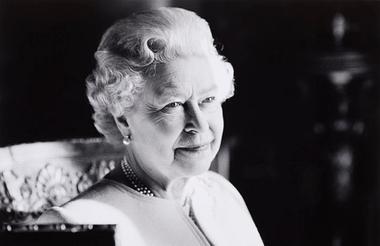Charities have been advised to review their fundraising, communications, marketing and campaigning activity during the current period of national mourning following the Queen’s death.
Queen Elizabeth II passed away on 8 September and a 10-day period of national mourning began the next day and is due to conclude with her state funeral on 19 September.
The Cabinet Office has published official national mourning guidance, which states that organisations are not obliged to cancel events during the 10-day period.
It also suggests that members of the public may wish to donate to one of the late Queen’s many charities of which she was a patron as a way of paying tribute.
NCVO urged charities to review their events, fundraising, publicity and campaigning activity over the next 10 days. The Chartered Institute of Fundraising (CIoF) and Fundraising Regulator also published guidance.
CIoF’s director of policy and communications Daniel Fluskey also recommended that charities cancel most fundraising, online marketing and social media activity during the national mourning period.
Meanwhile, the Queen’s successor, King Charles III, has also requested a period of royal mourning, to be observed by members of the royal family and royal household staff and representatives, to last until seven days after his late mother’s funeral.
Official national mourning guidance
The official guidance says that “many community organisations, including […] charities, will arrange events commemorating the life and service of Her Majesty” during the 10-day period.
It says: “There is no obligation to cancel or postpone events and sporting fixtures, or close entertainment venues during the national mourning period. This is at the discretion of individual organisations.
“As a mark of respect, organisations might wish to consider cancelling or postponing events or closing venues on the day of the state funeral. They are under no obligation to do so and this is entirely at the discretion of individual organisations.”
It adds that “making a donation to one of Her Majesty’s many charities and patronages may be considered a fitting way of paying tribute to her extraordinary legacy”.
NCVO advice
NCVO urged charity staff and leaders to “carefully consider which events should continue, particularly through the period of official mourning”.
“Other activities, such as fundraising or publicity, should be reviewed,” it said.
“However, the country faces significant economic and social challenges. Many organisations will not be able to afford to stop activities, nor would that be in the best interests of the communities they serve,” it added.
NCVO advised campaigning charities to “consider what is appropriate” given that much government work is likely to cease.
It suggested that all charities should review their scheduled communications “to avoid potential embarrassment or disrespect”.
NCVO also advised royal charities that now require constitutional changes to be approved by the Privy Council that there are likely to be disruptions and delays.
“The Queen’s patronage of charities will not necessarily be adopted by King Charles III. There is likely to be a review of charity patronage across senior royals in the months ahead,” it said.
Fundraising bodies’ guidance
The Fundraising Regulator and the Chartered Institute of Fundraising (CIoF) advised charity trustees and senior leaders to “carefully consider” any planned fundraising events during the period of national mourning and particularly on the day of the state funeral.
They urged charities to review whether any planned digital campaigns or email activity is “still appropriate to post or send and being sensitive to the public mood”.
Also, they said activity around key ceremonial locations may be affected in the next 10 days and urged charities planning to commemorate the Queen’s passing to do so in line with the regulator’s guidance.
Charities with links to the royal family “will be advised by the royal household of any changes in due course”, they said.
Fluskey of CIoF also posted a thread on social media yesterday, offering advice for charities and fundraisers during the national mourning period.
“Likely that more formal guidance is issued, but from talking to people this seems to be what most are planning in the eventuality,” he wrote.
“Cancelling majority of social comms and email/online marketing and fundraising activity, especially on the immediate day/s and on the date of the funeral. Being careful & sensitive about any comms in the 10-day national mourning period before the funeral.
“Events/in-person activity reviewed on a case by case basis, some will be postponed, may not be right to cancel others. Depends on the event, the cost of cancellation and lost income, and the public mood/experience of supporters.”
The Directory of Social Change has also published guidance, which includes a recommendation that charities with a social media policy that covers their staff might consider re-briefing it to reduce the likelihood of any staff making insensitive comments that may cause upset or reflect negatively on the rest of the organisation”.









